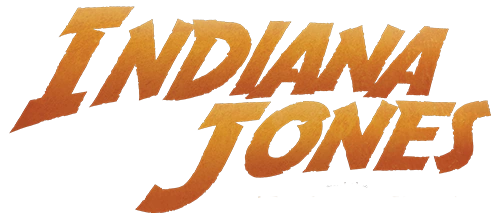No edit summary |
m (Reverted edits by 121.217.251.219 (talk | block) to last version by Vetinari) |
||
| (15 intermediate revisions by 6 users not shown) | |||
| Line 1: | Line 1: | ||
| − | '''The Raiders March''', Indiana Jones' theme, was originally two songs simply played on piano by composer [[John Williams]]. He invited Steven Spielberg to his performance and Spielberg asked him to link the two songs together to create Raiders March. |
+ | '''The Raiders March''', [[Indiana Jones]]' theme, was originally two songs simply played on piano by composer [[John Williams]]. He invited [[Steven Spielberg]] to his performance and Spielberg asked him to link the two songs together to create Raiders March. |
| − | The song was composed around |
+ | The song was composed around 1980 and it has been used in every movie and also appears in ''[[The Young Indiana Jones Chronicles]]'' to represent [[Harrison Ford]]'s portrayal of the character. |
| − | It has been used in every movie and appears in ''[[The Young Indiana Jones Chronicles]]''. |
||
| + | The full version of The Raiders March includes a section of the love theme from ''[[Raiders of the Lost Ark]]'', otherwise known as [[Marion's Theme]]. The shorter version excluding this section is sometimes referred to simply as Indiana Jones' Theme. The music was first heard in its entirety during the ending credits of the first film. |
||
| ⚫ | While primarily being a leitmotif, or a recurring musical theme, for Indiana Jones, the theme also makes several more whimsical appearances within [[The Adventures of Mutt]], the theme music for Indy's son, [[Mutt Williams]], as heard in full on the CD album. In fact, as Mutt swings from vine to vine in Kingdom of the Crystal Skull, the Raiders March plays robustly in the background. It is clear that Mutt has inherited not only part of his father's sense of adventure, but also a part of his rousing music. |
||
| + | ==See also== |
||
| ⚫ | While primarily being a leitmotif, or a recurring musical theme, for Indiana Jones, the theme also makes several more whimsical appearances within The Adventures of Mutt, the theme music for Indy's son |
||
| + | *[[Raiders of the Lost Ark (soundtrack)|''Raiders of the Lost Ark'' soundtrack]] |
||
| − | |||
| + | *[[Indiana Jones and the Temple of Doom (soundtrack)|''Indiana Jones and the Temple of Doom'' soundtrack]] |
||
| − | {{Stub}} |
||
| + | *[[Indiana Jones and the Last Crusade (soundtrack)|''Indiana Jones and the Last Crusade'' soundtrack]] |
||
| + | *[[Indiana Jones and the Kingdom of the Crystal Skull (soundtrack)|''Indiana Jones and the Kingdom of the Crystal Skull'' soundtrack]] |
||
[[Category:Real world music]] |
[[Category:Real world music]] |
||
Revision as of 16:34, 4 October 2014
The Raiders March, Indiana Jones' theme, was originally two songs simply played on piano by composer John Williams. He invited Steven Spielberg to his performance and Spielberg asked him to link the two songs together to create Raiders March. The song was composed around 1980 and it has been used in every movie and also appears in The Young Indiana Jones Chronicles to represent Harrison Ford's portrayal of the character.
The full version of The Raiders March includes a section of the love theme from Raiders of the Lost Ark, otherwise known as Marion's Theme. The shorter version excluding this section is sometimes referred to simply as Indiana Jones' Theme. The music was first heard in its entirety during the ending credits of the first film.
While primarily being a leitmotif, or a recurring musical theme, for Indiana Jones, the theme also makes several more whimsical appearances within The Adventures of Mutt, the theme music for Indy's son, Mutt Williams, as heard in full on the CD album. In fact, as Mutt swings from vine to vine in Kingdom of the Crystal Skull, the Raiders March plays robustly in the background. It is clear that Mutt has inherited not only part of his father's sense of adventure, but also a part of his rousing music.
